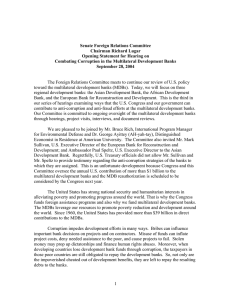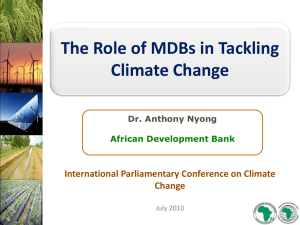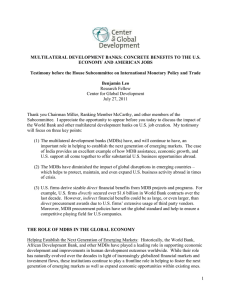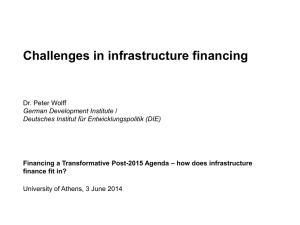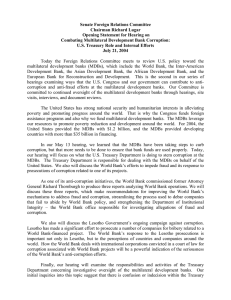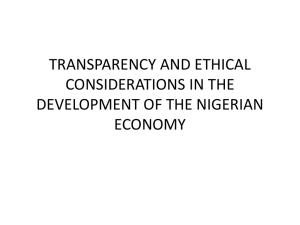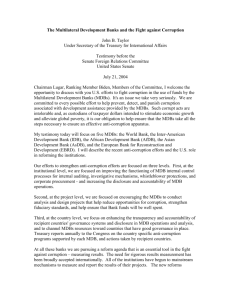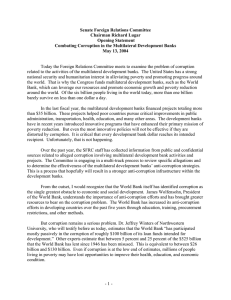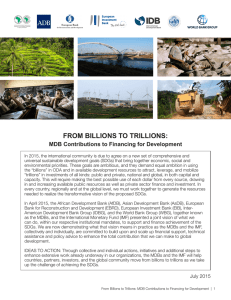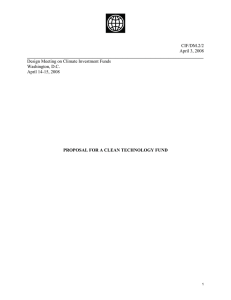Senate Committee on Foreign Relations Chairman Richard G. Lugar
advertisement
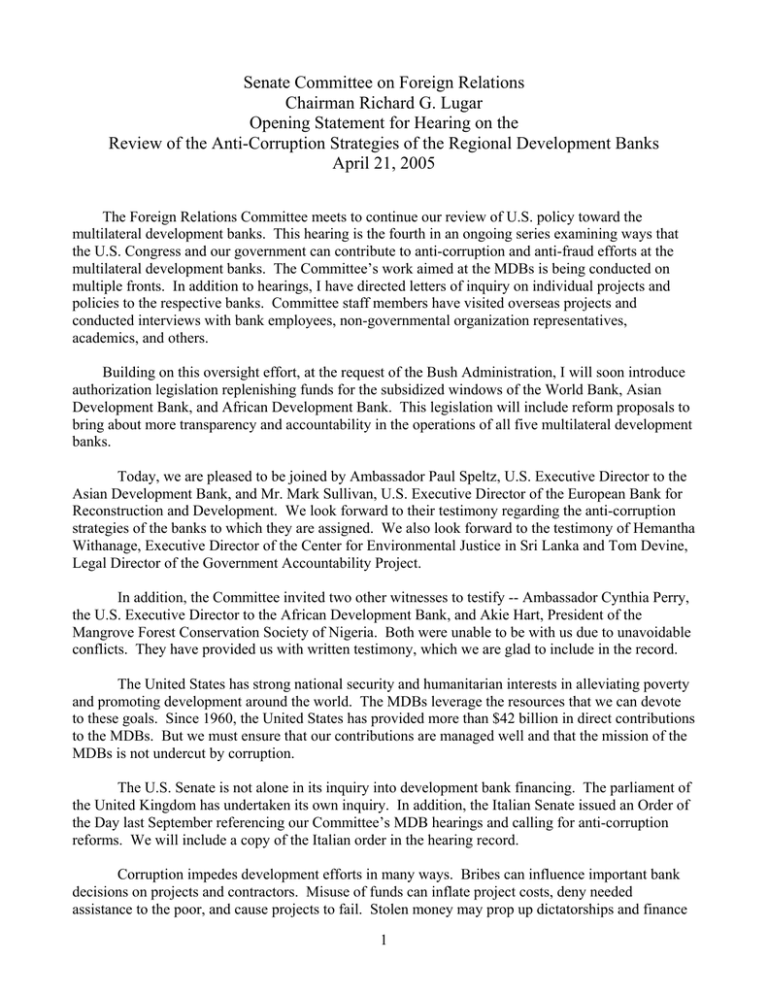
Senate Committee on Foreign Relations Chairman Richard G. Lugar Opening Statement for Hearing on the Review of the Anti-Corruption Strategies of the Regional Development Banks April 21, 2005 The Foreign Relations Committee meets to continue our review of U.S. policy toward the multilateral development banks. This hearing is the fourth in an ongoing series examining ways that the U.S. Congress and our government can contribute to anti-corruption and anti-fraud efforts at the multilateral development banks. The Committee’s work aimed at the MDBs is being conducted on multiple fronts. In addition to hearings, I have directed letters of inquiry on individual projects and policies to the respective banks. Committee staff members have visited overseas projects and conducted interviews with bank employees, non-governmental organization representatives, academics, and others. Building on this oversight effort, at the request of the Bush Administration, I will soon introduce authorization legislation replenishing funds for the subsidized windows of the World Bank, Asian Development Bank, and African Development Bank. This legislation will include reform proposals to bring about more transparency and accountability in the operations of all five multilateral development banks. Today, we are pleased to be joined by Ambassador Paul Speltz, U.S. Executive Director to the Asian Development Bank, and Mr. Mark Sullivan, U.S. Executive Director of the European Bank for Reconstruction and Development. We look forward to their testimony regarding the anti-corruption strategies of the banks to which they are assigned. We also look forward to the testimony of Hemantha Withanage, Executive Director of the Center for Environmental Justice in Sri Lanka and Tom Devine, Legal Director of the Government Accountability Project. In addition, the Committee invited two other witnesses to testify -- Ambassador Cynthia Perry, the U.S. Executive Director to the African Development Bank, and Akie Hart, President of the Mangrove Forest Conservation Society of Nigeria. Both were unable to be with us due to unavoidable conflicts. They have provided us with written testimony, which we are glad to include in the record. The United States has strong national security and humanitarian interests in alleviating poverty and promoting development around the world. The MDBs leverage the resources that we can devote to these goals. Since 1960, the United States has provided more than $42 billion in direct contributions to the MDBs. But we must ensure that our contributions are managed well and that the mission of the MDBs is not undercut by corruption. The U.S. Senate is not alone in its inquiry into development bank financing. The parliament of the United Kingdom has undertaken its own inquiry. In addition, the Italian Senate issued an Order of the Day last September referencing our Committee’s MDB hearings and calling for anti-corruption reforms. We will include a copy of the Italian order in the hearing record. Corruption impedes development efforts in many ways. Bribes can influence important bank decisions on projects and contractors. Misuse of funds can inflate project costs, deny needed assistance to the poor, and cause projects to fail. Stolen money may prop up dictatorships and finance 1 human rights abuses. Moreover, when developing countries lose development bank funds through corruption, the taxpayers in those poor countries are still obligated to repay the development banks. So, not only are the impoverished cheated out of development benefits, they are left to repay the resulting debts to the banks. At our May 13, 2004, hearing, we learned that the MDBs have been taking steps to curb corruption, but that more needs to be done. Our witnesses provided clear recommendations about how the MDBs can minimize leakage of development financing. They recommended changing the incentives at the MDBs so that staff would have less pressure to lend. Witnesses also recommended that the MDBs focus more actively on supervision and auditing of MDB lending. They argued for more transparency in MDB operations and an MDB requirement that borrowers improve transparency within their governments. In our July 21 hearing, we learned that the U.S. Treasury Department does encourage anticorruption efforts at the MDBs and reviews all MDB loans. Treasury, however, has limited ability to investigate the misuse of MDB funds. According to Under Secretary John Taylor, “The first line of attack, if our staff hears about issues like this, is to work through our executive directors at the institutions.” During our July hearing, we also learned that the government of Lesotho was strained financially during its prosecution of corruption related to a World Bank-financed project. Unfortunately, there is no mechanism to assist poor countries that want to prosecute corruption related to their loans. It was suggested that the MDBs harmonize anti-corruption policies and mutually recognize blacklists. As it now stands, a company that is debarred from the World Bank can still receive contracts from the other MDBs. The testimony that we will hear today will further inform our efforts to develop reauthorization legislation that I will introduce shortly. The challenge of preventing waste, fraud, and corruption at the MDBs must be tackled with vigor. We welcome our distinguished witnesses and look forward to their insights. ### 2
